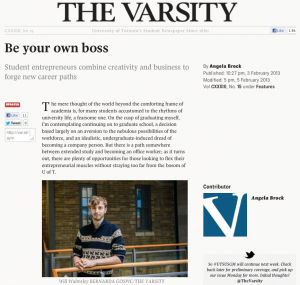Life Sciences Ontario’s statement on the 2015 Ontario Budget
TORONTO, ON (April 23, 2015) — Life Sciences Ontario (LSO) applauds the government’s continued commitment to supporting life sciences through the Ontario Health Innovation Council and its accompanying $20 million innovation fund, programs to support job creation for Ontario’s highly educated young workforce and a new approach to providing the venture capital needed to support the commercialization of technologies and growth of companies in the life sciences sector.
Specifically, LSO notes the following commitments from the 2015 budget that will help drive innovation in Ontario:
- Endorsing the Ontario Health Innovation Council report, which will establish a $20 million Health Technology Innovation Fund and appoint a chief innovation strategist to act on the report’s recommendations.
- Funding the TalentEdge Program, which provides internships for graduate and postgraduate students and is integral to boosting campus-linked industrial research while developing and commercializing the innovative ideas of young researchers.
- Committing $23.5 million over five years to help establish the Canadian Centre for Aging and Brain Health Innovation Centre at Baycrest Health Sciences, a world leader in cognitive neuroscience, and $25 million over five years to support the recently established Ontario Institute for Regenerative Medicine (OIRM).


